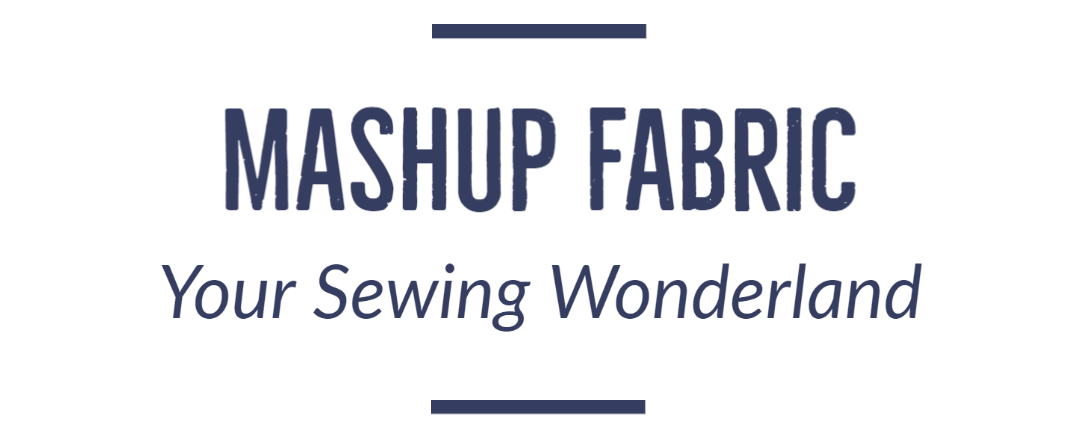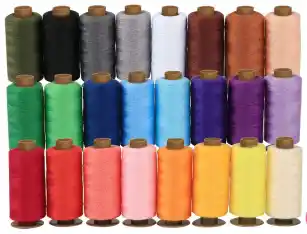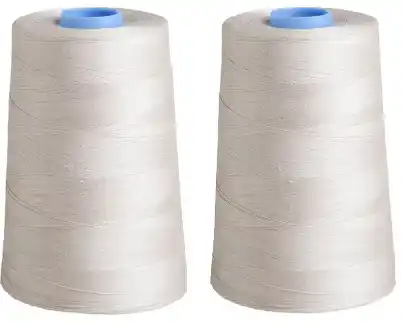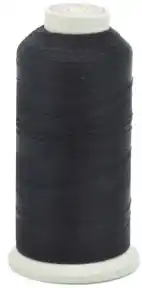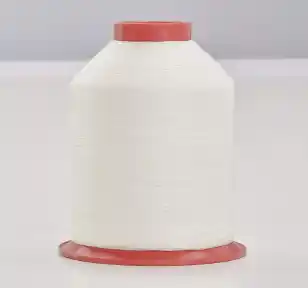Choosing the best threads for your Juki sewing machine is crucial for optimal performance and high-quality projects.
Selecting threads involves evaluating factors like thread type, weight, application, and specialty options. Key types like polyester, cotton, and bonded nylon each offer unique benefits for Juki machines.
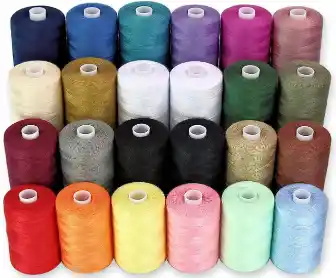
Proper thread weight enables smooth feeding and avoids tension problems. Quilting and embroidery projects may require specific threads to achieve desired results. Using the appropriate needles for your chosen thread is also essential.
This comprehensive guide will explore recommendations for the ideal threads based on material, weight, application, and specialty options to help you select the best threads for your Juki sewing machine.
Finding the optimal thread will lead to efficient stitching, durable projects, and showcasing your creative vision.
Key Thread Types for Juki Machines
When considering the best threads for your Juki sewing machine, three main thread types stand out as top options – polyester, cotton, and bonded nylon. Each offers unique benefits and properties.
Polyester Thread Benefits
Polyester thread is a versatile synthetic option known for durability, abrasion resistance, and a bit of flexibility. The stretch in polyester makes it suitable for knit fabrics and prevents breakage when the material moves.
Polyester handles high speeds well and resists UV rays and chemical damage. It provides consistent tension and neat stitches. Polyester works for a wide variety of fabrics and applications on Juki machines.
Cotton Thread Benefits
Cotton thread has a soft natural feel that is ideal for lightweight fabrics like chiffon, satin, and soft knits. The cotton fibers grip onto materials for stable stitching. Cotton offers a matte look that is attractive for quilting and garment construction.
However, cotton lacks stretch and may require loosening the top tension. Cotton works best for detailed handwork or medium speed machine sewing.
Bonded Nylon Thread Benefits
Bonded nylon thread provides exceptional strength and industrial performance. With high adhesion bonding, this thread resists fraying and enables neat stitches on heavy fabrics like denim, canvas, and leather.
Bonded nylon has good abrasion resistance and maintains consistent tension. It handles high speeds without fraying or breaking.
The thread’s thickness makes it suitable for outdoor applications and upholstery as it resists water and UV rays. For bag making and other heavy-duty projects, bonded nylon thread performs flawlessly on Juki machines.
Choose between these three main thread types based on your project’s specific fabric type and application needs. Consulting your Juki manual will provide insights on suitable thread weights and tensions as well.
Experiment with polyester, cotton and bonded nylon threads to determine which enhances your Juki sewing machine’s performance for different materials.
Thread Weight Considerations
When exploring the best threads for your Juki sewing machine, paying attention to thread weight is crucial for optimal stitching and performance. Juki machines are designed to work best with certain thread weights and diameters.
Using the appropriate weight avoids issues like excessive friction, tension problems, and thread breakage.
Lightweight vs Heavy Weight Threads
Most Juki home sewing machines can handle thread weights ranging from 30wt to 50wt. Lightweight threads like 35wt or 40wt are suitable for detailed stitching on delicate fabrics like chiffon and georgette.
They produce neat and attractive topstitching as well. Heavy weight threads like 45wt or 50wt work well for dense fabrics like denim, canvas, upholstery materials, outdoor gear, and more robust applications. Sturdy bonded nylon threads also fall within the heavier thread weights.
Too lightweight of a thread may get pulled into the fabric pores causing puckering. Heavy duty threads can overwhelm the mechanisms causing jams or breakage. Finding the sweet spot for your fabric’s density is key.
Consult your manual for recommendations based on your Juki model. For example, silk threads as light as 12wt may work for embroidery machines, while basic mechanical machines need at least 30wt threads.
Recommended Weights for Juki Machines
The weight or tex number of a thread indicates its thickness. A higher number means a finer, lighter thread. Tex 27 is an all-purpose weight suitable for knits and woven fabrics. Tex 40 works well for topstitching and piecing quilts.
For best results, pair lightweight fabrics with finer threads and heavier materials with bolder weights.
Make tension adjustments to accommodate different weights by loosening the top thread tension for thicker threads. Proper tension ensures smooth feeding and is essential for optimal stitch formation with any sewing machine thread weight.
Testing out various thread weights on fabric swatches will help determine the right choice for your projects and the ideal tension settings. Refer to your Juki manual for the tension range, needle size, and recommended weights for exceptional performance.
Threads for Specific Project Types
The best threads for your Juki sewing machine will depend on your particular project needs. Certain threads are better suited for techniques like quilting and embroidery. Choosing a thread designed for your application will enhance the quality and appearance of your finished project.
Quilting Thread Recommendations
For machine quilting, cotton threads are often recommended. Cotton thread has a matte appearance that complements quilt piecing. 40wt cottons like Aurifil or Mettler produce attractive stitches on quilts.
Cotton’s natural grip prevents slipping on multiple fabric layers and provides a soft feel. Cotton machine quilting thread comes mercerized or unmercerized – mercerized has a shinier smoother finish. Embracing the subtle irregularities of unmercerized cotton lends charm.
Embroidery Thread Recommendations
Embroidery projects require soft sheen threads that reflect light beautifully. Rayon or polyester embroidery threads enable vivid designs in a range of colors. These threads have a high twist and sheen to avoid tangling and fit neatly into the bobbin case.
Polyester filament threads like Madeira Aerofil pair well with rayon embroidery threads for dimension. Metallic foil or glow in the dark specialty threads can elevate embroidery designs.
Bag Making Thread Recommendations
For bag making, bonded nylon threads are the top choice to assemble durable, high-stress seams on heavy non-stretchy fabrics like canvas, denim, leather, vinyl, etc.
Bonded nylons have extra thickness and strength to reinforce seams while maintaining pliability for straps and boxing out corners. Tex 70 or Tex 80 is suitable for most bag assemblies and hardware installation on Juki machines.
Know your project’s end use and fabric type, then select the thread variety engineered for that application. Consulting sewing instructors, blogs, or forums provides further insights on pairing the best thread with your chosen project on a Juki sewing machine.
Specialty Thread Options
Beyond the basics, specialty threads allow you to get creative with your projects on the best Juki sewing machine and threads combination. Unique materials like metallic threads and glow in the dark threads can take your sewing to the next level.
Metallic Threads
Metallic threads infuse a touch of elegance into embroidery, embellishments, and special occasion garments. The sheen of metallic threads reflects light beautifully. Options include rayon or polyester based metallic threads with a smooth consistent coiling that prevents tangles and breakage.
Superior Threads’ Magnificent Metallic suits detailed embroidery while Razzle Dazzle by WonderFil adds sparkle to decor items. Metallic foil threads should be used in the bobbin only with standard embroidery thread up top. Avoid using a needle threader with delicate metallics.
Glow in the Dark Threads
Glow in the dark threads like Luminary create a novelty effect perfect for kids’ items or costume accents. Charge the project under light then watch it glow in the dark for a magical twist. The glow pigment is safely embedded in quality polyester filament that ensures stable tension.
Use glow thread in the bobbin with regular thread in the needle for optimal results.
Variegated Threads
Variegated threads provide ombre shading within one spool for convenient multi-colored effects. Variegated designs can mimic vines, peacock feathers, rainbows, and more based on the color gradients.
These threads add depth without changing spools, ideal for border patterns or all-over effects on apparel, table linens, or quilts. Polyester or rayon variegated threads like Aurifil offer colorfastness.
Optimizing Tension and Compatibility
Choosing the best threads for your Juki sewing machine requires optimizing tension and ensuring full compatibility. The right settings and components keep your Juki running smoothly.
Adjusting Tension for Different Threads
Adjusting tension for different thread types and weights impacts stitch quality. The tension dials and knobs on your machine control how the top and bobbin threads interlock. Incorrect tension causes issues like puckering, looping, or breakage.
With lightweight delicate threads, loosen the top tension so the bobbin thread slightly pulls the top thread to the underside. For thicker threads, tighten the top tension to avoid loops on the underside. Make adjustments in small increments with test stitches on scrap material.
The manual provides a baseline tension recommendation, but adjusting based on your specific thread and fabric combo fine-tunes it.
The ideal balanced tension shows threads locking between the layers, visible from both sides when cut. Be sure your Juki sewing machine is well-maintained inside for responsive tension adjustments and optimal performance.
Maintaining Machine Compatibility
Maintaining compatibility means using the right needles, throat plates, bobbins, etc. The needle size must suit the thread thickness to avoid shredding, breakage or skipped stitches. Ballpoint needles prevent damage to knits. Smaller sharps work for lightweight woven threads.
Larger needles accommodate thicker threads but still fit the needle bar. Metal bobbins and plastic throat plates handle friction, pressure, and heat better for heavy projects. Ensure components match thread weight for the best Juki sewing machine performance.
Optimized tension and compatibility minimize knots, tangles, and frustration when discovering the best threads for your Juki. Refer to manuals and troubleshooting resources to unlock your machine’s full potential.
Recommended Needles
Finding the best threads for your Juki sewing machine also involves choosing the right needles to complement the threads you select. Needles and thread work together for optimal stitch formation.
Needle Sizes for Different Thread Weights
Needle sizes are denoted by two numbers – the higher number indicates the needle shaft diameter in hundredths of a millimeter.
Standard sizes for home machines range from 60/8 to 120/19. For lightweight threads like 60wt cotton embroidery thread, use smaller needles around 70/10 or 80/12.
With heavy weight threads like 30wt denim thread, larger needles in the 100/16 range prevent shredding and breakage. Matching needle size to thread weight minimizes snags and friction.
Look for needles specifically designed for your fabric type as well. Ballpoint needles like Schmetz Jersey/Ballpoint have a rounded tip that separates knit fibers rather than piercing them.
Sharp needles better puncture woven fabric. Stretch and denim needles have a sharp point and scarfed notch to handle activewear. Leather needles have a wedge shape and cutaway to avoid damaging leather.
Branded Needle Recommendations
Top brands like Organ, Schmetz, and Klasse provide high quality needles for Juki machines. Nickel-plated brass shanks ensure secure fitting in the needle bar. Some brands offer specialized titanium-coated needles that resist heat and wear, maintaining sharpness longer.
consult your Juki manual for the best needle recommendations. Using the manufacturer’s advised needle for the thread provides optimal results.
Assess if it’s time to change your sewing machine needle every 3-4 hours of stitching or at the first sign of skipped stitches, fraying, or snags. Installing quality needles in the properly sized hole positions threads smoothly to stitch their best.
Thread Performance Properties
When selecting the best threads for your Juki sewing machine, evaluating thread performance properties ensures suitability for your projects. Key factors like strength, durability, flexibility, and abrasion resistance determine how a thread performs.
Durability and Strength
Thread strength indicates how much tension or pull it can withstand before breaking. High strength prevents snapped stitches even on heavy thick fabrics. Bonded nylon and thick polyester threads rank highest in overall strength. Strength also correlates with durability over time.
Durability means the thread retains its integrity despite friction, UV light, chemicals, or other wearing factors. Durable threads maintain vibrant color and elasticity while resisting fraying. Threads like Fil-Tec Glide use trilobal polyester to balance strength and flexibility.
Flexibility and Elasticity
Flexible threads provide some ease or stretch instead of breaking when the fabric shifts or feeds through the machine. Natural fibers like cotton lack stretch but synthetic polyester offers more flex. Excessive stretchiness can impede tension. The right degree of flex prevents breakage.
Abrasion resistance allows thread to smoothly pass through needle eyes and machine mechanisms without fraying or fuzzing. Abrasion resistance contributes to performance longevity. High-quality threads use techniques like mercerization or bonding to shield fibers.
Analyze specifications for tenacity, elongation, shrinkage, and friction damage to gauge performance properties when choosing between thread brands. Prioritize strength for upholstery and denim sewing or flexibility for knits and activewear.
Finding the optimal balance of properties suits your Juki sewing machine and projects.
Industrial Thread Options
For heavy-duty projects, industrial thread options work excellently with Juki sewing machines. Brands like Fil-Tec and Aruvo offer bonded nylon and polyester threads with superior strength for leatherwork, canvas, denim, and upholstery fabrics.
Fil-Tec Bonded Nylon
Fil-Tec produces professional grade bonded nylon threads engineered for commercial sewing but suitable for home use. Their 69 tex Extra Strong thread withstands up to 22 pounds of pressure. It comes in black and vibrant tones like crimson red and seafoam green.
Fil-Tec’s bonded nylon thread resists chemical and UV damage.
Aruvo Bonded Nylon Threads
Aruvo threads comprise twisted filament nylon fibers bonded together and mercerized for sheen. Their heavyweight bonded nylon thread maintains high tensile strength to reinforce seams yet leaves some pliability.
Aruvo threads excel at edge-stitching luggage and handbags. White and navy blue Aruvo perform well across project types.
Alternatively, Fil-Tec’s Gütermann Mara bonded polyester offers superior abrasion resistance and seam strength even for high-speed sewing. This German engineered thread is highly colorfast.
Using Thicker Threads
When exploring the best threads for your Juki sewing machine, using thicker threads like Tex 70 or Tex 80 bonded nylon requires adjusting some settings. Thicker industrial threads need proper tension and components to avoid problems.
Maximum Recommended Thickness
Check your manual for the maximum recommended thread thickness for your Juki model. Most home machines can safely handle up to Tex 60 threads. Very fine lightweight machines are best suited for Tex 40 and below. Using too heavy of a thread can overload the motor or jam mechanisms.
Adjusting Bobbin Tension
For thick bonded nylon threads, the bobbin tension likely needs loosening to prevent puckering and thread breaks. The top tension can remain standard, but allow the bobbin thread to pull more filament from above. Consider a presser foot with guide channel to keep heavy threads aligned.
Throat Plate Recommendations
Install a throat plate with a slightly elongated needle hole to accommodate the thicker thread with minimal friction. Plastic and phenolic options have a slicker surface while metal may snag threads. Ensure the throat plate sits flush.
Clean lint frequently to minimize snagging and maintain smooth motion. Use the appropriate heavy duty needle size like 14/100 or 16/100 to match the thread thickness. With minor adjustments, Tex 70 or 80 threads create durable seams to handle heavy projects on Juki sewting machines.
Ideal Fabrics and Applications
The best threads for your Juki sewing machine depend on the fabric type and intended application. Selecting thread suited for the material and project creates optimal results.
Lightweight vs Heavy Fabrics
Choosing the right weight for lightweight fabrics like chiffon, voile, and fine cottons prevents puckering and pulled seams. Delicate materials pair well with fine 60wt cotton covered polyester or microfilament polyester like YLI Wonder. Silk threads also minimize hole elongation in sheers.
Heavy weight canvas, denim, and leather perform best with thicker durable threads like bonded nylon or 30wt cotton. These threads withstand friction and reinforce seams without cutting into the fabric. For outdoor gear and upholstery, UV and water resistant threads add durability.
High Speed Operations
For high speed operations like serging stretch knits, polyester core-spun threads move smoothly without distortion or fuzzing at racing speeds. Matching thread weight to fabric weight keeps the thread on top in the optimum tension range.
Considering the fabric type and project goals guides your thread selection. Light garment sewing needs lightweight strong threads while crafts use all-purpose options. Understanding the demands of your materials and desired results ensures you choose the optimal thread for flawless stitching.
The perfect thread allows your Juki sewing machine to smoothly handle both smooth silks and tough upholstery work. Let your fabrics and crafting aspirations guide you to the ideal match.
Testing Different Threads
Finding the best threads for your Juki sewing machine may involve trying out various options on scrap fabrics before starting your project. Testing helps evaluate stitch appearance, tension, jamming, and other factors.
Run test swatches with multiple weights or material blends at different tensions, speeds, and needle sizes. Inspect the top and bobbin sides for balance. Make notes on performance to identify the optimal sewing machine thread choices before cutting into your good fabric.
Consult your Juki manual for baseline recommendations on tension, needles, and suitability. But personal testing provides the most precise combination for flawless results on your specific machine model and fabrics.
Conclusion
Selecting the best threads for your Juki sewing machine requires considering the thread type, weight, composition, and intended application. Factors like strength, flexibility, abrasion resistance, and specialty effects determine suitability.
Optimizing tension and machine compatibility enables smooth stitching. Testing threads on your machine model and fabric provides the ideal pairing for your projects.
With quality threads, proper needles, and well-tuned tension, your Juki sewing machine will produce professional, durable results and bring your creative vision to life. Find your perfect thread match and enjoy the journey of sewing on your Juki!
